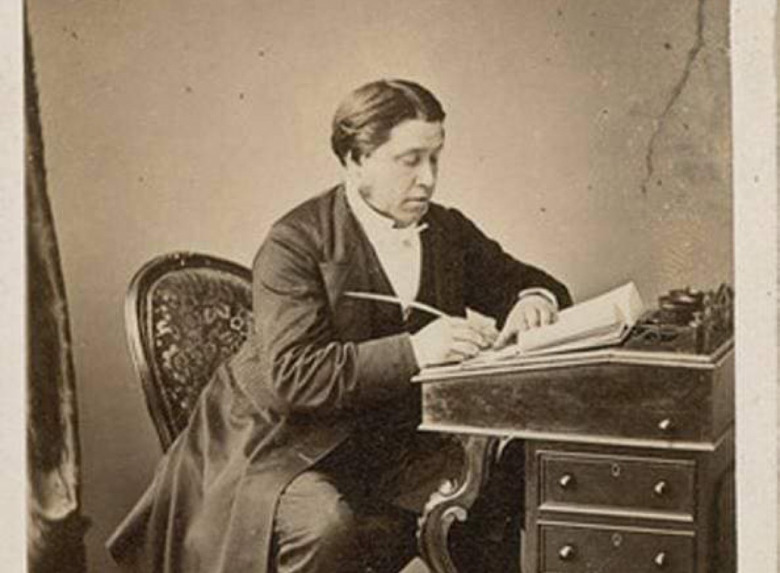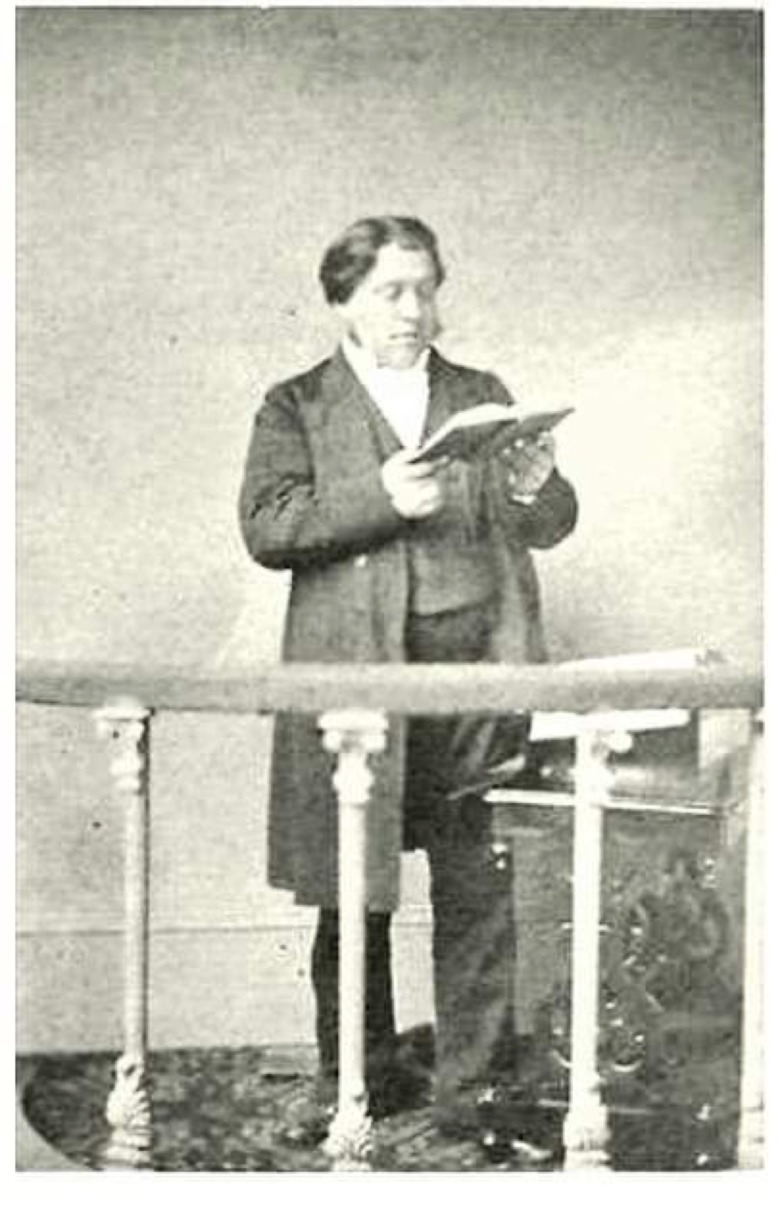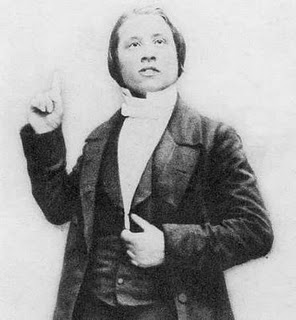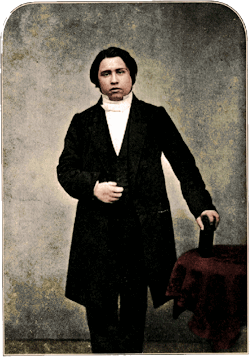
by Jeremy Walker | Pastor, Maidenbower Baptist Church
The Young Recruit
The life of Charles Spurgeon was so full of grace, gifts and labour, and so much has been written by and about him, that we must leave out much that is of interest and usefulness in reviewing his life and ministry.
He was born in Kelvedon, a village in the county of Essex in the east of England, on 19th June 1834. For the first few years of his life he lived with his grandparents in a town called Stambourne, returning to his parents’ home when about five years old (his grandfather, James, was a Congregational [Independent] minister of the gospel, as was Charles’ father, John). Even in youth, his earnestness, boldness, and intelligence became rapidly apparent. From the earliest years of his life young Charles would plunder his grandfather’s shelves of their Puritan treasures, if only initially to look at pictures in, for example, Bunyan’s Pilgrim’s Progress and Foxe’s Book of Martyrs. Still, he learned to read and practiced the art from an early age. As the years progressed, his schooling continued to reveal a precocious intellect and a ready tongue.

At the age of fifteen he entered a school in Newmarket as both student and a teacher of younger boys. One of his own teachers in theology was the cook at the home in which he boarded, who loved and lived a vigorous Calvinism, and helped the young man with many difficult questions of faith and practice. He was spiritually sensitive, but still unconverted, although for many years he had been alive to the reality of his sin, painfully convinced of his wretchedness.
At the beginning of the next year, having returned home for Christmas, he set off for church one Sunday. This was the day appointed by God for his great work of grace in the young man’s heart. The circumstances are striking, and the honour is God’s alone. As he travelled, the Lord sent a snowstorm which eventually turned him into a Primitive Methodist chapel. As it happened, the regular minister was unable to be there – perhaps prevented by the same snowstorm – and eventually a thin man got up to preach. To this day, no-one knows who he was. His text was Isaiah 45:22: “Look unto me, and be ye saved, all the ends of the earth.” The man was no practiced speaker and, after about ten minutes of vigorous but curious exposition, he was running out of steam. Spotting the young stranger, he found a new aspect to his message: “Young man, you look very miserable, and you will always be miserable – miserable in life, and miserable in death – if you don’t obey my text; but if you obey now, this moment, you will be saved. Young man, look to Jesus Christ. Look! Look! Look! You have nothing to do but look and live!” This came with divine power to young Spurgeon’s soul. He had doubtless heard many good and powerful sermons in his youth, but now the Word of God came by the power of God’s Spirit with saving strength. Spurgeon looked and lived, and the joy of salvation flooded into his heart as he trusted in Christ to deliver him from sin, death and hell. It was 6th January 1850. The excellence and preciousness of Christ would colour all the subsequent labours of Charles Spurgeon.
It was not long before Satan roared in again at Charles. The young man had fondly imagined that he would now be free of such attacks, but doubts, foul thoughts and blasphemies again assailed him. This bitter experience was brief, as Christ helped his young lamb to wrestle against his sinful heart, but it taught Charles that Christian living was a battle, not a bed of roses. It was a battle which he earnestly joined as a Christian warrior.
Having been converted, Charles was admitted as a member of a Congregational church in April of that year. However, by now some of his thinking had matured, and he had been convinced from Scripture that believers, and only believers, ought to be baptised. He therefore applied to a local Baptist minister for baptism, and on 3rd May 1850 he walked eight miles to a village called Isleham where he was baptised by Mr. Cantlow in the River Lark (where a stone still stands to mark the spot). He received communion for the first time on 5th May (he would not take the Lord’s supper until he had been baptised), the same day on which he entered upon his labours as a Sunday School teacher, rapidly proving popular with the children, and with many adults also.

In the summer of 1850 he moved to the university city of Cambridge. In this city he continued as a teacher-student, and joined a Baptist church. As he entered into the life of the church, and advanced in his understanding, new opportunities for service arose; one in particular was unceremoniously thrust upon him. A man called James Vinter was responsible for organising various men to preach in outlying villages, and one day called Spurgeon to him. Vinter explained that a young man was going to preach at a village called Teversham, and – as the fellow in question was not much used to services – would probably be very glad of some company. Spurgeon accordingly met up with an older Christian lad, and they set off together to Teversham one Sunday afternoon. Their conversation soon revealed that this other young man was expecting Charles to preach, and nothing would induce the older boy to change his mind. With this new responsibility pressing upon him, he decided to preach his first sermon on “Unto you therefore which believe he is precious” (1 Peter 2:7), and did so to the profit and pleasure of the few villagers gathered in a cottage.
His preaching labours increased in number and effect, until – aged only seventeen – he was called to pastor a church in the godless village of Waterbeach, not far from Cambridge. His zealous labours and keen insight into the sin of men and the grace of God meant that, before too long, Waterbeach was transformed. Although there is evidence of development and maturing in these early years, surely there are few preachers who have been so fully and so early equipped by God as was Spurgeon! After two years in Waterbeach, and aged only nineteen, Spurgeon was invited to preach at New Park Street Chapel in London. There was a good pedigree to the church there: previous ministers had included Benjamin Keach, John Gill, and John Rippon, all differently but greatly used of God in their day. But a good pedigree was not enough. Iain Murray speaks of the prevailing spiritual conditions in England at the time:

Protestant Christianity was more or less the national religion . . . The church was not lacking in wealth, nor in men, nor in dignity, but it was sadly lacking in unction and power. There was a general tendency to forget the difference between human learning and the truth revealed by the Spirit of God. There was no scarcity of eloquence and culture in the pulpits, but there was a marked absence of the kind of preaching that broke men’s hearts. Perhaps the worst sign of all was the fact that few were awake to these things.
In this context, Spurgeon entered London and began to declare God’s Word.
The chapel at New Park Street had seats for some twelve hundred people. On the morning Spurgeon first preached, there were perhaps between one hundred and two hundred people present. God so owned his preaching to the congregation that they – excited by what they heard – called out friends and neighbours, so that by the evening the congregation was significantly larger.
Spurgeon agreed to return for further preaching dates, and within a few weeks, the church had called him to become their pastor. The young preacher offered to come on three months’ trial, and called for earnest prayer from the church. It was not long before the building was packed with eager hearers as Spurgeon, himself earnestly praying and enjoying the same with and from the people, preached the sovereign grace of God in Christ Jesus, and the church urged him to receive the pastorate on a full time basis. Spurgeon accepted on the condition of this earnest and urgent prayer continuing.
See Part 2.
Jeremy Walker serves as a pastor of Maidenbower Baptist Church in Crawley, England, and is married to Alissa, with whom he enjoys the blessing of three children. He has authored several books, including Our Chief of Days: The Principle, Purpose, and Practice of the Lord’s Day, Anchored in Grace: Fixed Points for Humble Faith, and He is grateful to preach, to teach, and to write as opportunity provides.
C. H. Spurgeon is the Author of the Month for January 2022 at Logos. Get discounted Spurgeon resources here.



